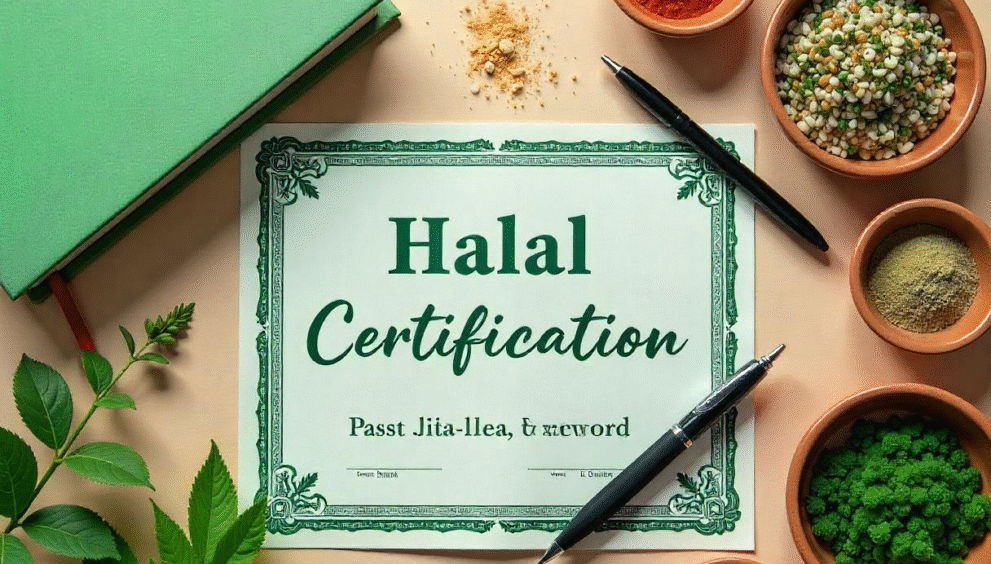Halal Certification: What It Is and Why It’s a Big Deal

You’ve probably seen the halal certification symbol on food packaging or heard the term tossed around in conversations about dining, but what does it really mean? Halal certification is much more than just a label—it represents an entire way of life for millions of people around the world. It’s about following specific ethical, religious, and legal guidelines that ensure products meet certain standards.
But here’s the thing: Halal certification isn’t just important for Muslims—it’s increasingly becoming a matter of quality, transparency, and trust. As the global market for halal products grows, businesses that offer halal-certified goods are tapping into a booming industry that spans continents and cultures.
So, why does halal certification matter, not just for producers, but for consumers and businesses alike? Let’s take a closer look at what halal certification is all about, why it’s important, and how it could benefit your business (whether you’re catering to the Muslim community or just trying to make your products stand out in a crowded market).
What Does “Halal” Mean?
The word halal (حلال) comes from Arabic, and it simply means “permissible” or “lawful” in Islam. It refers to anything that is allowed or permitted under Islamic law (known as Shariah law). In the context of food and drink, halal certification ensures that products comply with the dietary laws set out in the Quran and the Hadith (sayings and actions of the Prophet Muhammad).
For food and beverages, this includes things like:
- No pork or pork-based ingredients (as pork is considered impure in Islam).
- No alcohol or intoxicants.
- The method of slaughtering animals must meet specific requirements to ensure the meat is ethically prepared.
In short, halal is about more than just avoiding certain ingredients—it’s a way to ensure that every step of the production process aligns with religious guidelines. But it’s not just food that can be halal. The term applies to a wide range of products, from cosmetics and pharmaceuticals to fashion and even financial services.
The Global Importance of Halal Certification
With more than 1.9 billion Muslims around the world, the demand for halal products is huge—and growing. It’s not just about food anymore. In fact, the global halal market is valued at trillions of dollars, with halal food and beverages making up a significant portion. From halal cosmetics to halal tourism, this certification has expanded into nearly every consumer category you can think of.
And here’s something interesting: it’s not just Muslim consumers who are seeking out halal-certified products. In recent years, people from all walks of life—those looking for ethical, cruelty-free, and healthy options—are choosing halal-certified goods because they perceive them as cleaner, safer, and more transparent.
If you’ve got a business that’s even slightly involved in food, health products, or cosmetics, certificazione halal could open the door to new markets and customers. It’s not just about meeting the needs of Muslim consumers—it’s about positioning your brand as a leader in quality, trust, and ethical responsibility.
What Is the Halal Certification Process?
Getting halal certification sounds like a process, right? Well, it is—but don’t let that scare you. It’s not that complicated if you follow the right steps. Here’s a quick rundown of how it typically works:
1. Choose a Certifying Body
The first step is finding a reputable halal certifying organization. These are usually either local authorities or international bodies recognized by the global halal certification network. In some countries, certifying agencies are government-recognized, while in others, it’s a bit more decentralized.
2. Review Your Ingredients and Processes
Once you’ve got a certifier, they’ll review your product ingredients, production processes, and even packaging. They’ll make sure everything from the raw materials to the final product aligns with halal standards. For example, if you’re making processed food, you need to ensure there are no non-halal ingredients, like alcohol or animal fats, hidden in the recipe.
3. Inspection and Audits
Expect an audit. The certifying body will send auditors to inspect your facilities and processes. They’ll want to make sure everything is being done according to halal guidelines. This could include verifying supplier documentation, checking how food is stored, or confirming that there’s no cross-contamination with non-halal products.
4. Ongoing Compliance
Once you get the certification, it’s not a “set and forget” deal. Halal certification requires continuous compliance. Depending on the certifying body, you may need periodic audits to ensure your practices are still in line with halal standards. Regular inspections keep the integrity of the certification intact, and they help consumers trust that you’re consistently delivering halal products.
5. The Final Step: Certification
Once everything is approved, you’ll receive your halal certificate, allowing you to officially use the halal logo on your products. This logo is what signals to customers that your product meets the highest halal standards.
Why Does Halal Certification Matter for Consumers?
For Muslim consumers, halal certification is crucial. It provides peace of mind that the products they’re purchasing align with their religious beliefs. But beyond the spiritual significance, halal products often carry added ethical and health benefits. Here’s why:
1. Ethical and Humane Treatment of Animals
The halal slaughter process, known as Zabiha, involves specific guidelines to ensure that animals are treated with respect and compassion. This includes ensuring the animals are slaughtered quickly, with minimal pain, and that the process is carried out by a trained professional.
For consumers concerned about animal welfare, this provides a layer of assurance. The idea that animals are treated humanely before being slaughtered resonates with broader concerns about ethical consumption.
2. Transparency and Trust
Halal certification offers transparency in the food industry. In a world where consumers are increasingly aware of where their food comes from and how it’s produced, halal certification reassures them that the product is ethically sourced, meets quality standards, and is free from hidden, unwanted ingredients.
3. Health and Safety
There’s also a health aspect to halal certification. Since halal rules prohibit harmful additives like alcohol, pork, and certain preservatives, halal products are often perceived as cleaner and more natural. For those who are health-conscious, this is an important factor when choosing products.
How Halal Certification Can Boost Your Business
If you’re a producer or business owner, halal certification can open doors to a massive global market. Here’s how:
1. Access to New Markets
As mentioned earlier, the demand for halal products isn’t limited to Muslim-majority countries. Consumers worldwide are increasingly drawn to halal products for their perceived health benefits, ethical sourcing, and transparency. Whether you’re selling food, skincare, or even pharmaceuticals, having halal certification could mean new opportunities in markets that might otherwise have been closed off.
2. Brand Loyalty and Trust
When consumers see the halal certification logo on your products, they know they can trust your brand. This loyalty is incredibly valuable. For many, halal isn’t just a certification—it’s a mark of quality and integrity. This kind of trust builds long-term customer relationships and encourages word-of-mouth recommendations.
3. Increased Sales and Revenue
Let’s face it: halal certification can be a market differentiator. As more consumers prioritize ethical, cruelty-free, and healthy products, your halal-certified goods could stand out in a crowded marketplace. And with the growing global demand for halal products, there’s potential for significant sales growth. Think of it as an investment in a niche with massive upside potential.
4. Competitive Advantage
Having halal certification can give your business a competitive edge. In a saturated market, standing out is key, and being able to tap into a growing demographic of halal-conscious consumers is an advantage that your competitors might not have.
Overcoming Common Misconceptions About Halal Certification
Like any certification, halal has its fair share of misconceptions. Let’s clear up some of the most common myths:
1. Halal Is Just for Muslims
While it’s true that halal is a religious guideline for Muslims, halal products are becoming increasingly popular with non-Muslim consumers, too. People are attracted to halal-certified food and products because of the ethical treatment of animals, the focus on quality, and the absence of harmful additives. It’s not just about religion; it’s about making a conscious, informed choice.
2. Halal Certification Is Too Expensive or Complicated
Yes, getting halal certified does come with some costs, but it’s not as overwhelming as it might seem. In fact, for many businesses, the costs are outweighed by the potential benefits—access to new customers, better product quality, and increased trust. As for the process, it’s mostly about ensuring your existing practices align with halal standards, which many businesses already do in some capacity.
3. Halal Is Only Relevant for Food
Halal certification applies to much more than just food. It’s found in cosmetics, pharmaceuticals, financial services, and even fashion. If you’re a business that makes or sells consumer goods, you might be surprised at how versatile halal certification can be.
Final Thoughts: Should You Pursue Halal Certification?
If you’re in the business of producing goods or services that can be halal-certified, it’s definitely worth considering. Not only does it cater to the needs of a large and growing global demographic, but it also signals your commitment to quality, transparency, and ethical practices.
Halal certification is a powerful tool in today’s market, whether you’re looking to build brand loyalty


 English
English 











































































































































































































































































































































































































































































































































































































































































































































































































































































































































































































































































































































































































































































































































































































































































































































































































































































































































































































































































































































































































































































































































































































































































































































































































































































































































































































































